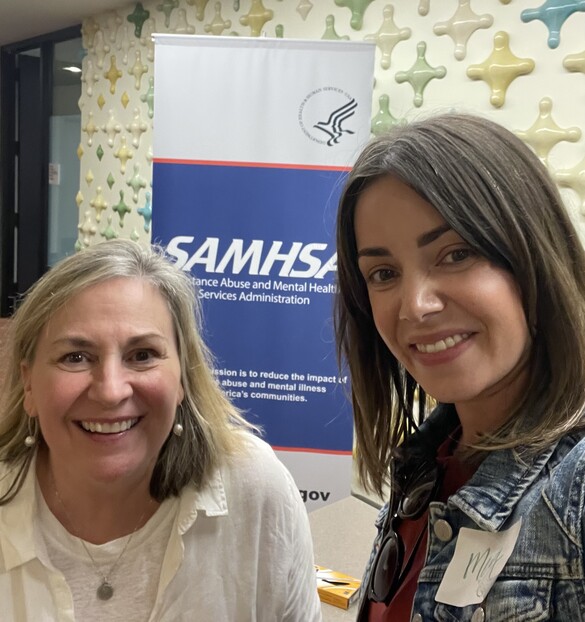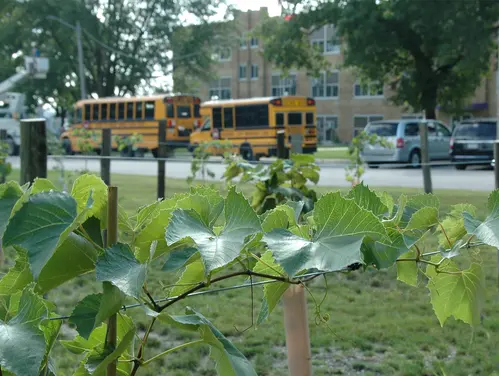Here’s food for thought: Proper nutrition and good mental health go hand in hand. And to that end, two consultants at the Iowa Department of Education would like to see schools consider merging the two disciplines together.
Attending a conference aptly called Food and Mood, Consultants Barb Anderson and Meg Collins said they walked away excited about the possibilities.
“My takeaway was that I was inspired and recharged to see what is possible,” said Anderson, who specializes in behavioral health at the Department. “How do we – mental health and food and nutrition – work more together?”.
“There are a lot of opportunities with these two avenues which historically have been kept pretty separate,” said Collins, who is a part of the nutrition team at the Department and also focuses on school-grown food gardens. “It’s wonderful getting these people together in one room.”
It comes down to this: both good mental health and proper nutrition are important to maximize education outcomes.

“There is a connection between how food insecurities can affect mental health,” Anderson said. “We also know that behavioral health and food and nutrition are essential for learning. Looking at the research that intersects mental health and food shows that they go hand in hand.”
Anderson said that to move in this direction, a shift in long-term planning is all that is required from schools.
“There has to be intentional planning about how to share and leverage resources,” she said.
“Many districts already have local foods being incorporated into their meals,” Collins said. “There is so much stuff that is already being done already, so it is just taking it to the next level. For instance, for those using a school garden, they could incorporate therapeutic horticulture: the healthy nature of nutritious food, the physical nature of growing a garden, and incorporating mental health initiatives into the horticulture programs.”
School gardens give students a sense of community.
“Brain research shows that human interaction is vital,” Anderson said. “Students who may be having a difficult time relating with others get a better sense of belonging through horticulture.
“Students who do this are contributing, developing work skills and know they aren’t going to go hungry. If you don’t have money and you are trying to make ends meet, it is very hard to eat a nutritious meal. And without a nutritious meal, it makes learning so much more difficult.”
“Schools focus on how to set their students up for success,” Collins said. “Consider using food to help with behavior and vice versa. When kids don’t have access to food and they are hungry, they are not going to learn.”
There is no specific way on how to incorporate this mindset into the schools.
“It is not like a checklist,” Collins said. “It is more of an integration between the two components. Schools should consider the possibilities where these two avenues can intersect and enhance each other.”
Going forward, Anderson and Collins will be working on coming up with sustainable approaches to this.
“How might we provide more technical assistance for schools so that they consider this as a part of their approach?” Anderson said. “We would want to have conversations on how we can further support and develop best practices for a holistic approach.”
Subscribe to receive email updates from the Iowa Department of Education.
